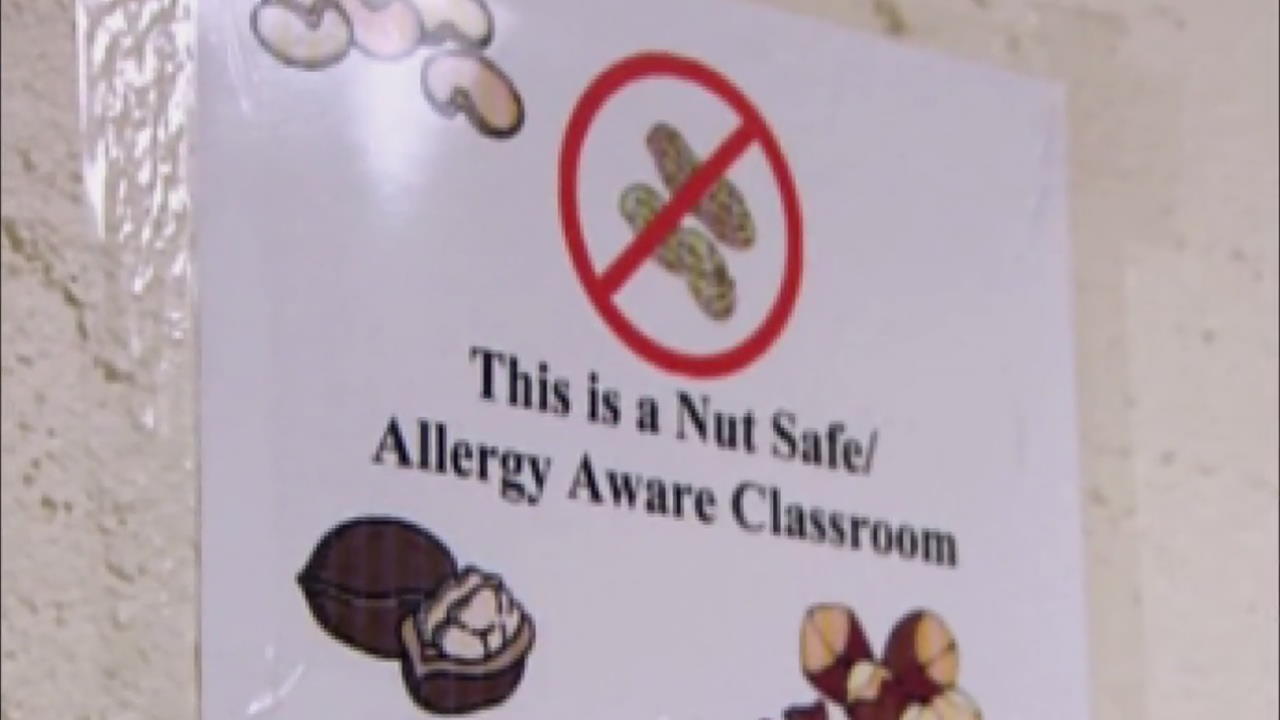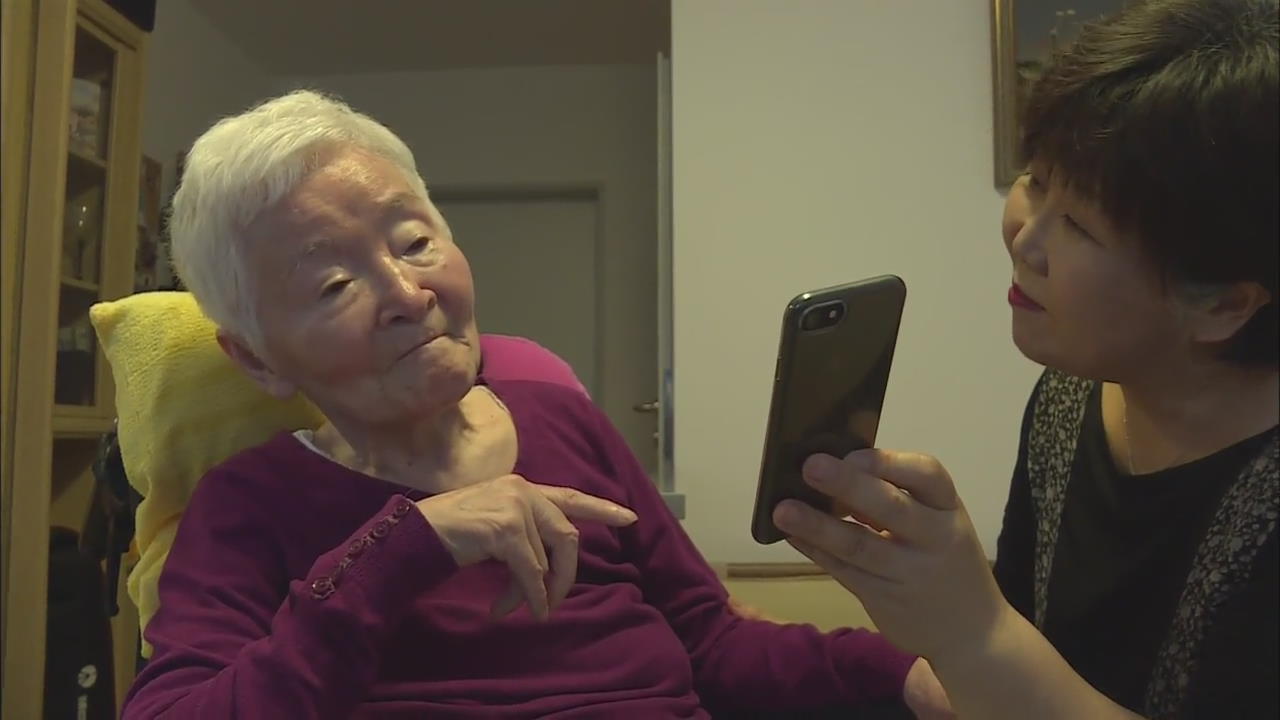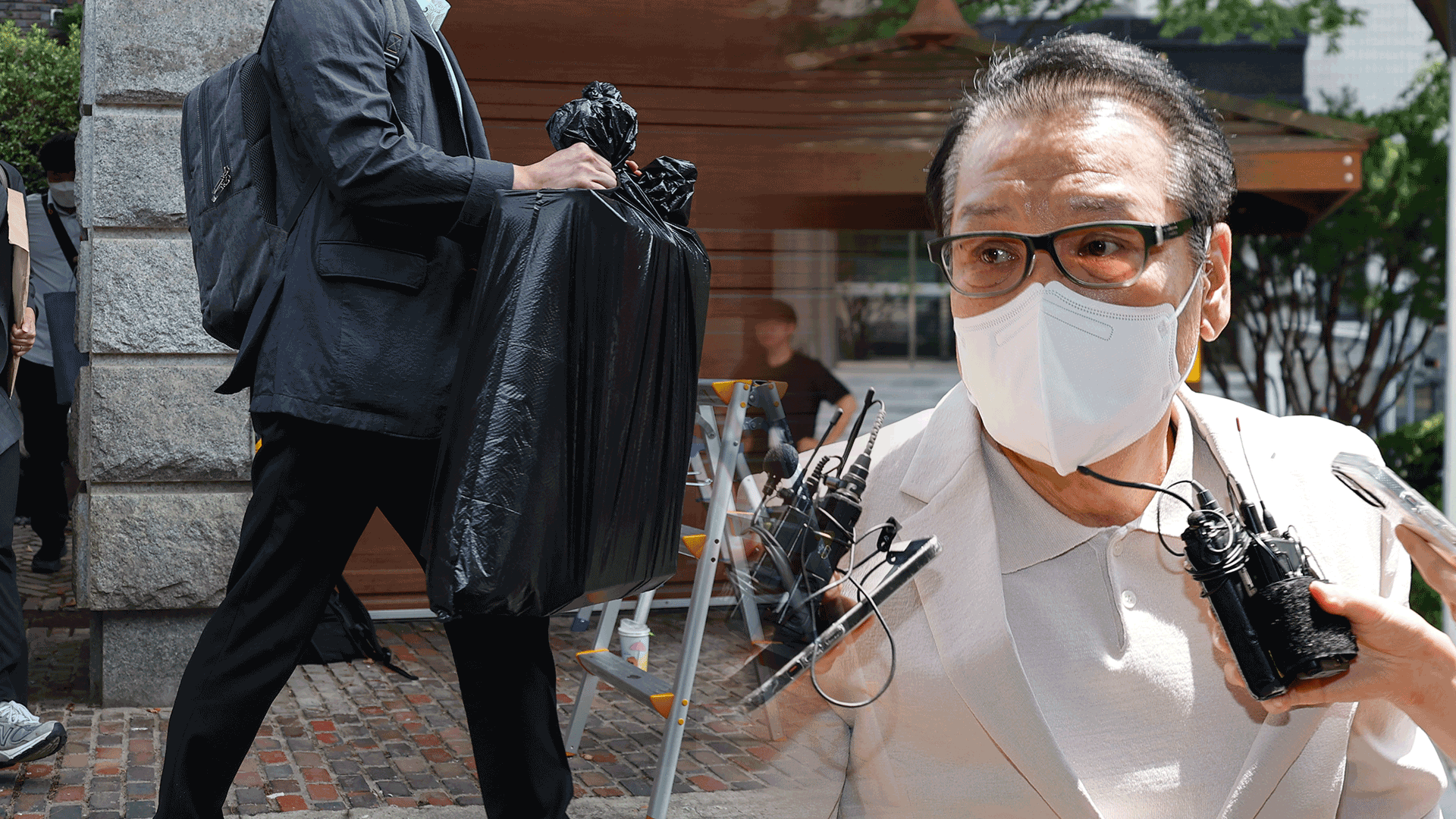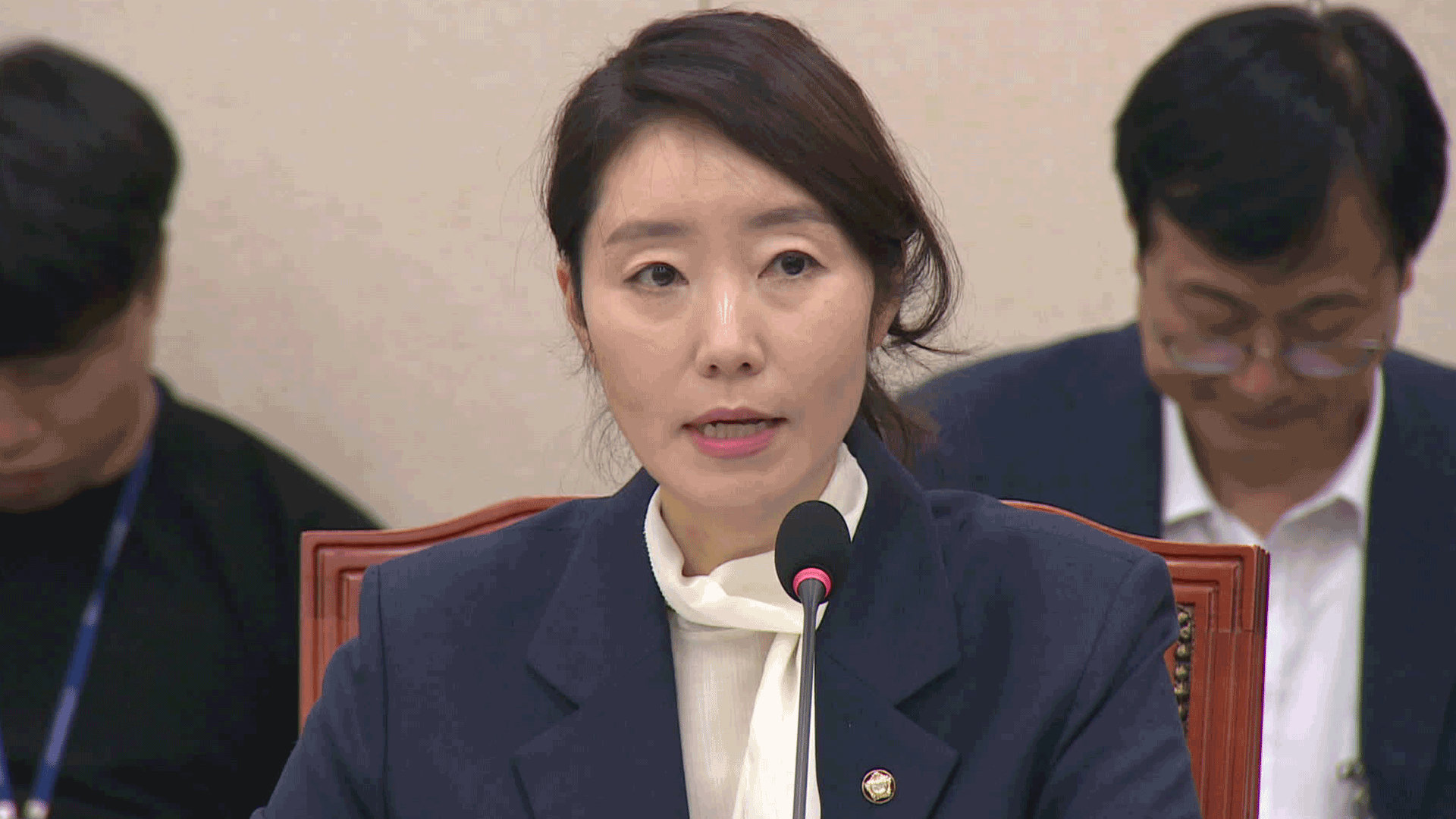Dangerous Food Allergies
입력 2017.07.10 (14:20)
수정 2017.07.10 (14:26)
읽어주기 기능은 크롬기반의
브라우저에서만 사용하실 수 있습니다.
[Anchor Lead]
Food allergies are a growing social concern in Korea. A survey finds that 16 percent of elementary, middle and high school students and two percent of adults have had the experience. The food industry is called to make changes and come up with countermeasures.
[Pkg]
This man asks for a favor at this restaurant selling Korean cold noodles called naengmyeon.
[Soundbite] "One Pyongyang Naengmyeon please, without cucumber slices."
The diner has been allergic to cucumbers for six years.
[Soundbite] Patient Allergic to Cucumber : "I see pimples rise. At times, I could have an outbreak on my entire face."
[Soundbite] Naengmyeon Restaurant Owner : "Some customers order Neangmyeon without cucumbers, because they don’t like the fragrance that cucumber gives off."
With a growing number of consumers developing allergies to certain ingredients, the food industry is taking relevant measures such as posting notice signs. This pizza parlor indicates potentially allergic components not only on the menu but also on delivery receipts. There are now bakeries that don't use milk or eggs at all.
[Soundbite] Sin Seong-cheol(Bakery Owner) : "We use soy milk instead of regular milk. And for children who can't consume soy milk, we just use water for the bread dough."
But these measures are only the beginning. Since May, it became mandatory for franchised restaurants to disclose the composition of their raw ingredients, but the rule has not been properly observed.
[Soundbite] "Aren't you supposed to indicate allergic components?"
[Soundbite] Fast Food Restaurant Employee : "We don't do that separately and just indicate the place of origin of our ingredients."
In other countries such as the US, violators of food labeling regulations are subject to confiscation of their entire stock. Stringent measures are also in place to preventing students with allergic symptoms from sharing food or even a table with others. Some 800 food allergy-related cases were reported last year in Korea, nearly double the figure from 3 years earlier.
Food allergies are a growing social concern in Korea. A survey finds that 16 percent of elementary, middle and high school students and two percent of adults have had the experience. The food industry is called to make changes and come up with countermeasures.
[Pkg]
This man asks for a favor at this restaurant selling Korean cold noodles called naengmyeon.
[Soundbite] "One Pyongyang Naengmyeon please, without cucumber slices."
The diner has been allergic to cucumbers for six years.
[Soundbite] Patient Allergic to Cucumber : "I see pimples rise. At times, I could have an outbreak on my entire face."
[Soundbite] Naengmyeon Restaurant Owner : "Some customers order Neangmyeon without cucumbers, because they don’t like the fragrance that cucumber gives off."
With a growing number of consumers developing allergies to certain ingredients, the food industry is taking relevant measures such as posting notice signs. This pizza parlor indicates potentially allergic components not only on the menu but also on delivery receipts. There are now bakeries that don't use milk or eggs at all.
[Soundbite] Sin Seong-cheol(Bakery Owner) : "We use soy milk instead of regular milk. And for children who can't consume soy milk, we just use water for the bread dough."
But these measures are only the beginning. Since May, it became mandatory for franchised restaurants to disclose the composition of their raw ingredients, but the rule has not been properly observed.
[Soundbite] "Aren't you supposed to indicate allergic components?"
[Soundbite] Fast Food Restaurant Employee : "We don't do that separately and just indicate the place of origin of our ingredients."
In other countries such as the US, violators of food labeling regulations are subject to confiscation of their entire stock. Stringent measures are also in place to preventing students with allergic symptoms from sharing food or even a table with others. Some 800 food allergy-related cases were reported last year in Korea, nearly double the figure from 3 years earlier.
■ 제보하기
▷ 카카오톡 : 'KBS제보' 검색, 채널 추가
▷ 전화 : 02-781-1234, 4444
▷ 이메일 : kbs1234@kbs.co.kr
▷ 유튜브, 네이버, 카카오에서도 KBS뉴스를 구독해주세요!
- Dangerous Food Allergies
-
- 입력 2017-07-10 14:21:44
- 수정2017-07-10 14:26:39

[Anchor Lead]
Food allergies are a growing social concern in Korea. A survey finds that 16 percent of elementary, middle and high school students and two percent of adults have had the experience. The food industry is called to make changes and come up with countermeasures.
[Pkg]
This man asks for a favor at this restaurant selling Korean cold noodles called naengmyeon.
[Soundbite] "One Pyongyang Naengmyeon please, without cucumber slices."
The diner has been allergic to cucumbers for six years.
[Soundbite] Patient Allergic to Cucumber : "I see pimples rise. At times, I could have an outbreak on my entire face."
[Soundbite] Naengmyeon Restaurant Owner : "Some customers order Neangmyeon without cucumbers, because they don’t like the fragrance that cucumber gives off."
With a growing number of consumers developing allergies to certain ingredients, the food industry is taking relevant measures such as posting notice signs. This pizza parlor indicates potentially allergic components not only on the menu but also on delivery receipts. There are now bakeries that don't use milk or eggs at all.
[Soundbite] Sin Seong-cheol(Bakery Owner) : "We use soy milk instead of regular milk. And for children who can't consume soy milk, we just use water for the bread dough."
But these measures are only the beginning. Since May, it became mandatory for franchised restaurants to disclose the composition of their raw ingredients, but the rule has not been properly observed.
[Soundbite] "Aren't you supposed to indicate allergic components?"
[Soundbite] Fast Food Restaurant Employee : "We don't do that separately and just indicate the place of origin of our ingredients."
In other countries such as the US, violators of food labeling regulations are subject to confiscation of their entire stock. Stringent measures are also in place to preventing students with allergic symptoms from sharing food or even a table with others. Some 800 food allergy-related cases were reported last year in Korea, nearly double the figure from 3 years earlier.
Food allergies are a growing social concern in Korea. A survey finds that 16 percent of elementary, middle and high school students and two percent of adults have had the experience. The food industry is called to make changes and come up with countermeasures.
[Pkg]
This man asks for a favor at this restaurant selling Korean cold noodles called naengmyeon.
[Soundbite] "One Pyongyang Naengmyeon please, without cucumber slices."
The diner has been allergic to cucumbers for six years.
[Soundbite] Patient Allergic to Cucumber : "I see pimples rise. At times, I could have an outbreak on my entire face."
[Soundbite] Naengmyeon Restaurant Owner : "Some customers order Neangmyeon without cucumbers, because they don’t like the fragrance that cucumber gives off."
With a growing number of consumers developing allergies to certain ingredients, the food industry is taking relevant measures such as posting notice signs. This pizza parlor indicates potentially allergic components not only on the menu but also on delivery receipts. There are now bakeries that don't use milk or eggs at all.
[Soundbite] Sin Seong-cheol(Bakery Owner) : "We use soy milk instead of regular milk. And for children who can't consume soy milk, we just use water for the bread dough."
But these measures are only the beginning. Since May, it became mandatory for franchised restaurants to disclose the composition of their raw ingredients, but the rule has not been properly observed.
[Soundbite] "Aren't you supposed to indicate allergic components?"
[Soundbite] Fast Food Restaurant Employee : "We don't do that separately and just indicate the place of origin of our ingredients."
In other countries such as the US, violators of food labeling regulations are subject to confiscation of their entire stock. Stringent measures are also in place to preventing students with allergic symptoms from sharing food or even a table with others. Some 800 food allergy-related cases were reported last year in Korea, nearly double the figure from 3 years earlier.
이 기사가 좋으셨다면
-
좋아요
0
-
응원해요
0
-
후속 원해요
0

















이 기사에 대한 의견을 남겨주세요.